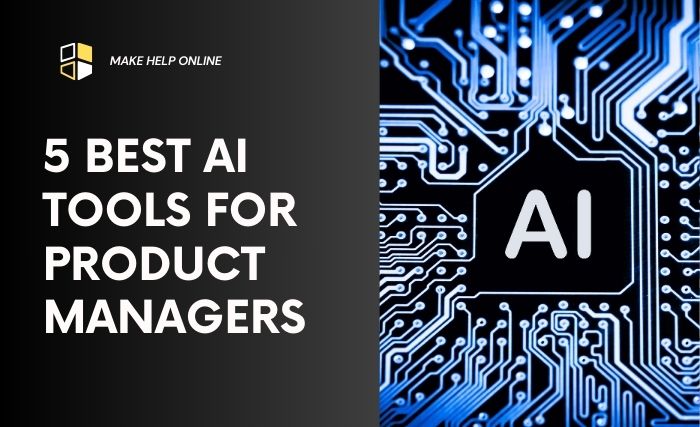A Product manager today is always on their toes ‘technologically and strategically’ in the current age of constant change. They oversee tasks such as product and feature development, management of customer opinions, and coordination of the development team among others. There is where dotpearl has AI tools for product managers that improve efficiency, effectiveness, and decision-making processes.
It doesn’t matter if you have been a product manager for a while or have just transitioned to the role, it would always be better to work smart than hard and AI will help you do that. Here are the five most powerful AI tools within product management which are meant for augmenting the scope of product managers of the future.
Table of Contents
1. Productboard: A Product Roadmap for Feature Prioritization Using AI
Productboard is a solution that addresses the needs of product managers in making the right decisions based on the voice of the customer. It is a product management software that assists teams in uncovering user requirements and discovering meaningful directions for their product.
Key AI Features:
Automated Prioritization: With artificial intelligence, Productboard scans customer reviews and ranks the features according to their importance and scope of impact. This guides product managers on the areas most valuable to the users.
Sentiment Analysis: The feedback and comments made by customers are analyzed by intelligent algorithms in the tool, which helps in understanding customers’ attitudes towards specific features or products.
Don’t miss: 10 Best Software License Management Tools For 2024
Why Productboard is Great for Product Managers:
Productboard is a product that revolves around AI and in addition to self-aggregation of feedback, helps make sense of it all. It guides you towards the right features on focus and provides you with a roadmap on where the product is headed – Taking out the guesswork from the equation.
2. Jira: With Automation and AI-Powered Integrations:
Jira is already a mammoth when we talk about the management of projects and tracking issues. But with its automation features and AI-powered integrations, this utensil ‘jerry, can shove a thumb up the bottom of product managers with the overload of activities.
Key AI Features:
Automated Workflows: JIRA provides a variety of AI-based automation rules to tackle repetitive chores. Be it tracking reports, updating the concerned team members, or ensuring deadlines are being ticked off, automation with AI takes the worry out of monotony.
Predictive Analytics: The project timelines, resource estimation, logistic arrangements, and roadblocks among others can now be obtained or approximated with the help of AI integrations into Jira which is effective in planning.
Why Jira is Essential for Product Managers:
Using Jira once again, product managers don’t have to overestimate bureaucracy risks and inefficiencies as projecting project outcomes becomes hassle-free thanks to the inbuilt AI capabilities. It is in most cases ideal for targeting teams and managing the scope of the project to avoid becoming derailed.
3, Aha!: How AI-Backed Roadmaps Innovative the Planning Process ‘Smarter
Moderated by Kasia Iniewis, as an Aha! Enthusiast, defining a thatch with Aha! Seems quite an uneventful exercise. With it, product managers do not idly wait for some marvelous ideas to pop up, and then decide on roadmap development.
This helps to not only understand the complete product roadmaps but also plan features, strategize, etc. based on customers and market trends.
Key AI Features:
AI-Based Recommendations: With Aha! AI helps prioritize product features concerning the population’s feedback and market evolution.
AI Timeline Prediction Tool: The tool comes with AI-based timeline predictions that help product managers disperse resources effectively and provide correct delivery times.
Why Aha! is worth its weight in Gold:
Through the use of artificial intelligence technology, customer insights including feedback can be generated from extensive amounts of customer data. In this case, Aha! This will help product managers focus more on their core duties while beating the due date of product delivery.
4. Miro: features adapted to other activities:
Miro is a collaboration tool that enables team members to collaborate through visuals. Be it the initial Brainstorming session to wireframes and product plans, Miro adds value to the team. The addition of AI in these processes makes it even more helpful to product managers who act as middle bosses from various other departments.
Key AI Features:
Intelligent Templates and Auto Layout: Templates are suggested and information is delivered in a logical way to visualize things effectively through Miro’s AI in Miro.
Auto Summarisation: AI generates notes and revisions during brainstorming or meetings so that all stakeholders understand the purpose.
Why Miro is the Best for Product Managers:
Miro’s AI-based features facilitate the collaboration of product managers and the decomposing of highly complex concepts into simple executable ideas. Wherever you are collaborating with your team on ideas or trying to strategize a product, it is made easier with Miro.
UserVoice: Learn what Customers Want
UserVoice is a feedback management tool that allows product managers to all three central actions: source, synthesize, and act on customer feedback. With AI in its engine, UserVoice onboards feature prioritization of external desires and feedback.
Key AI Features:
Sentiment Analysis: UserVoice puts AI to better use in stressing the emotions and opinions attached to user feedback thus, helping you appreciate your users’ views with regards to the product.
Trend prediction: Significant trends that are yet to be popularized are brought to highlight by AI algorithms in UserVoice enabling you to put your efforts into features that will most affect the future of your product.
The Significance of UserVoice for Product Managers
For product managers, it is essential to benefit from ideas from users in terms of enhancing features, and in this regard, UserVoice brings value to the visitors. It performs analysis of the feedback and with delegation of such tasks, requires minimal time needed in referring to the collected feedback due to reasons specified.
How Product Managers Benefit with AI Tools
As the roles of product managers expand in this age, there is a possibility of a revolution where digital tools powered by AI come in. Helping PMs elevate their focus by burying mundane tasks such as prioritization, feedback analysis, timeline expectation, team formation, etc.
What are the Benefits of AI tools for product managers
Improved Decision Making: AI tools add-ups in a way enhanced and better the outputs and strategies for PMs thus enhancing the performance rate.
Increased productivity: These automation capabilities decrease the amount of repetitive and routine work done, facilitating the life of the product managers who emphasize analyzing the products of the market as a priority.
Enhances customer understanding: The AI-based degree of these tools enables them to provide comprehensive data regarding customers’ wants, expectations, and challenges considering the steps taken in making product-related decisions.
Conclusion
Taking advantage of appropriate AI tools could better help product managers perform their duties and create superior products more quickly. Products such as Productboard, Jira, Aha!, Miro and UserVoice have embedded sophisticated artificial intelligence tools that enhance the efficiency of product management.
With the help of AI, there is little scope for undertaking repetitive processes in deploying efforts and resources while the focus is directed toward making great products. Get the edge over your competitors by employing these AI tools for product managers’ use in your workflow processes today.





